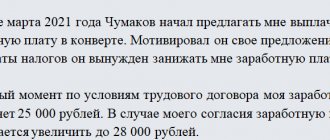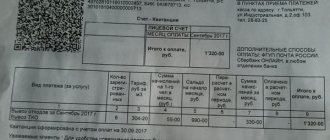Individuals with statements can file their appeals with state prosecutors. Every citizen of our vast country, a foreign person, a stateless person, an official, an organization - they all have the right to contact this body in order to obtain a fair decision on the issue of protecting their own civil rights from violation.
Complaints to the prosecutor's office are considered within the framework of issues of any kind and include both minor and large-scale cases.
What applications are submitted to the prosecutor's office?
There is no strict form of templates in which applications can be submitted, since such documentation is compiled and executed within the framework of a free official business style , in which there are no unnecessary emotions and epithets.
There is no need to use excessive legal terminology, legal norms or personal (subjective) assessment of the current circumstances. During the consideration of cases, errors and blots are not taken into account.
The application is drawn up within the framework of a free official business style, in which there are no unnecessary emotions and epithets
There are a huge number of causative factors based on which an interested party may file a complaint. The main points include the following:
- delay of wages;
- failure to provide the set of requested information from the government agency;
- illegal acts of dismissal by superiors;
- refusal to register with the civil registry office.
The complete complaint form must include several basic points:
- name and address of the prosecutor's office;
- surname, name, patronymic of the applicant, contact information about him (address, fax, tel.);
- the reasons and circumstances in accordance with which the document is filed (this could be various unlawful actions on the part of potential defendants);
- a list of the applicant’s demands (restoration of rights, suppression of further violations, etc.);
- signature, date.
There are also a few points to keep in mind while drafting a legal paper:
- in the last place, the consideration of insubstantial and voluminous letters is carried out : it is important that the document does not contain unnecessary and unnecessary information, “water”, and is drawn up factually and succinctly;
- the requirements proposed by the applicant must be realistic and not taken from the head, since complaints in which there are too many “exorbitant” demands are not subject to consideration at all;
- on the part of the applicant, the document must provide real evidence of the fact that his rights were violated: personal opinions and beliefs remain aside and are ignored by the employees of the body.
For 100% consideration of a complaint, its preparation must be carried out in accordance with the requirements of the instructions related to the procedure for citizens' appeals. Compliance with the norms of correspondence in a business tone also plays an important role: the text must be clear, relevant and reliable, contain evidence and a set of necessary details.
Procedure for consideration of applications
The period for consideration of an application by the prosecutor's office includes the time of its preliminary and further study.
Preliminary
In the process of filing a complaint, it is subject to recording, and then a preliminary decision is made. Of course, the applicant receives written notification of this result . This is done by mail, regardless of the applicant’s status.
If a complaint is filed incorrectly, it is left unattended and ignored. If everything is correct, an appropriate decision is created for subsequent work and verification activities.
Note! The application paper can be submitted to subordinate structures or sent to other government services.
When the complaint is filed repeatedly or is an addition to the existing papers provided, it can easily be included in the main process.
The processing time in this situation is 3 days from the date of registration of the application with the prosecutor's office and its entry into the accounting book. It is during this time that a preliminary decision is created.
Further
After acceptance for consideration at the previous stage, the main check begins. A further decision must be provided to the applicant in the form of a special notice. Based on the decision of the representatives of the authority, the complaint can be:
- satisfied in part or in full, if it is necessary to protect the rights and interests of the plaintiff or fulfill his demands for compensation;
- sent for detailed study to lower structures;
- explained to the person for each of the requirements and grounds provided;
- rejected if the requirements are not justified and no violations are noticed.
In accordance with this procedure, the deadlines may vary based on the content and structure of the appeal.
When a complaint may not be accepted
In conclusion, it is worth describing cases when your complaint may not be accepted at all. That is, those situations when, after studying the document, prosecutors refuse to open a case. The list of grounds for refusal is very long:
- The complaint was made with errors, there are serious corrections and numerous erasures;
- The complaint is not drawn up in accordance with the standard template provided by law;
- The complaint contains unconfirmed information and speculation that is not relevant to the case;
- The text of the complaint contains insults or profanity, or is completely unreadable due to grammatical errors;
- There are contradictions or incorrect information in the text of the complaint;
- The complaint does not contain any offense, or the crime committed is not being considered by the prosecutor’s office;
- The necessary documents and evidence were not attached to the complaint.
In this case, the period for consideration of the application by the prosecutor's office is not counted at all, and the complaint is returned to the applicant with an explanation of the reason for the refusal.
Terms of consideration
In general, in practice, there are two types of deadlines for studying complaints - general and shortened :
- General. It implies a time interval of no more than 30 days . It is needed so that prosecutors can carry out checks and identify violations. It is clear that this will require a certain amount of time. The period may be increased due to the need to expand the evidence base on the part of the applicant and bring additional papers. The applicant will receive a separate notification about this. It turns out that initially the total period is at least 30 days, but it can be extended when considering special cases and within individual conditions. To extend it, a corresponding petition is generated with a detailed statement of the reasons.
- Abbreviated. This period applies to those complaints that do not require the provision of supporting materials and inspections . Applications of this type are reviewed within 15 days. No additional documents are required for these papers; the requirements themselves do not require labor-intensive activities and processes, which ensures a high speed of proceedings.
Thus, the period for response to an application to the prosecutor’s office is 15 or 30 days.
It is important to know! A separate category of complaints includes applications filed by persons participating in criminal proceedings. They are studied for 3 days, and the maximum possible period in case of extension does not exceed 10 days.
Time limits for consideration of applications or complaints
The period established for consideration of applications is counted from the moment of registration of the application. After submitting the application to the relevant authorities, it is registered within three days.
The registration date will be considered the day when:
- a corresponding entry was made in the accounting book;
- the letter was delivered by the postman and a dated return receipt was sent to the applicant;
- The application was registered on the official website of the prosecutor's office.
Often, to conduct an inspection it is necessary to obtain additional materials, the wait for which may affect the duration of the inspection. If such a need arises, the period of proceedings before the supervisory authorities may be extended by decision of the prosecutor, but not more than by 30 days. The procedure for extending inspection periods is also established by law. To do this, a petition is drawn up, which explains why the period is being increased and motivates the adoption of such a decision.
All complaints from persons who are participants in criminal proceedings are considered by the prosecutor's office within 3 days; this period cannot be extended by more than 10 days.
Be sure to include your passport details and address, as anonymous letters are not accepted for consideration.
Before writing a complaint to the prosecutor's office, consult with a lawyer on our site. He will help you correctly compose the text of the letter and provide free advice on all issues related to this appeal. It will also explain the procedure for receiving and considering applications by the prosecutor.
Which ones do not receive consideration?
In fact, all letters from citizens are considered. After representatives of the service carry out an initial review, the prosecutor decides whether it is necessary to make an appeal to subsequent proceedings, or whether it is possible to limit oneself to the available material and make a decision. But there may be hiccups with some statements :
- non-acceptance for consideration due to objective circumstances;
- transfer to lower prosecutorial services and branches;
- redirection for the purpose of conducting verification activities within the walls of law enforcement agencies and services;
- return back to the applicant indicating the main reasons.
Without a response, there may be requests that contain blots and flaws
In order to avoid forwarding the submitted letter to other authorities, you must first make an independent appeal to the management of the company whose activities caused the need to create a complaint. If you receive a refusal there, you can file an appeal to the prosecutor’s office. Without a response, there may be requests that contain blots and flaws:
- information about the applicant is not indicated, and the letter is considered anonymous;
- there is not enough data for the issue to be considered resolved;
- there is direct interference by third parties in the competence of supervisory and control bodies and services;
- the text contains elements of obscene language, threats to life and health;
- the letter does not contain any meaning or logical chain, and the applicant is disabled;
- the appeal is generated repeatedly and does not provide new facts and information;
- slandering other persons is not recognized as truthful, as is accusing them of something they did not do.
What letters does the department not respond to?
The prosecutor's office reviews the majority of letters received from citizens. After receiving applications, a decision is made to carry out the necessary verification activities within a specified period. Some of the emails received may:
- transferred to lower-level structural bodies;
- be referred to law enforcement agencies or local authorities;
- return to the applicant with a description of the objective reasons for such a decision.
Thus, the following statements from citizens may remain unanswered by supervisory authorities:
- The letter does not contain the applicant's details. Anonymous complaints remain unanswered. However, if anonymous requests contain information about a committed or impending offense, they may be sent to the competent authority for investigation. It is better to refuse the anonymous method of submission, since the department will not be able to provide adequate assistance. It is worth noting that sending anonymous letters to the supervisory authority is not prohibited by law. If anonymous letters contain information that threatens the lives of other people, they may be sent to law enforcement agencies to determine the identity of the applicant.
- The information provided in the letter is insufficient, the text is unreadable or its meaning is unclear.
- The text contains obscene language, insults, and threats. The applicant will be sent a warning about the possible consequences of abuse of the right to appeal to supervisory authorities. A decision may be made to hold the citizen accountable.
- Repeated applications from citizens for which an investigation has already been carried out and no new circumstances are reported in the dispatch.
The procedure for consideration of a complaint by the prosecutor is regulated by Article 124 of the Criminal Procedure Code (Code of Criminal Procedure) of the Russian Federation and the Federal Law “On the Prosecutor's Office of the Russian Federation”. Regardless of the decision made regarding the received written application, the sender will be explained the procedure for appealing it to a higher authority and the right to submit documents to the court.
If not considered
As a result of a comprehensive investigation, the prosecutor's office sends a response to the applicant with a decision. In any case, the applicant will receive a letter containing a response, even if the application is not subject to consideration.
Only letters that are anonymous, i.e., that do not contain a return address, remain unanswered. Verification activities are considered completed during the consideration of all issues covered in the application paper.
The applicant is required to be notified of the outcome of the proceedings. If the appropriate prosecutorial notice has been issued, the applicant must receive detailed information about when and where he can familiarize himself with the results of the execution of the decision. If the application is of a collective nature, the response may be sent to the responsible persons.






